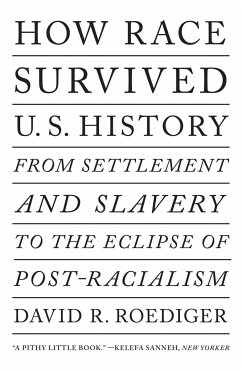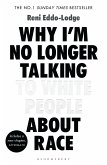In this absorbing chronicle of the role of race in US history, David R. Roediger explores how the idea of race was created and recreated from the 1600s to the present day. From the late seventeenth century--the era in which Du Bois located the emergence of "whiteness"--through the American revolution and the emancipatory Civil War, to the civil rights movement and the emergence of the American empire, How Race Survived US History reveals how race did far more than persist as an exception in a progressive national history. Roediger examines how race intersected all that was dynamic and progressive in US history, from democracy and economic development to migration and globalisation.







